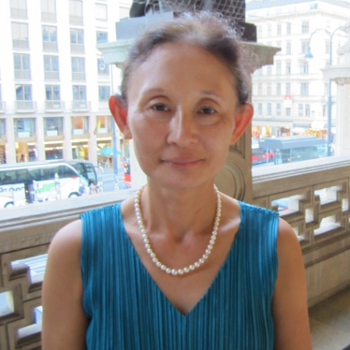Every once in a while, one comes across an opera performance that promises a great deal and delivers beyond any expectation; Bayreuth’s Lohengrin, premièred in 2010 with much notoriety for its production filled with rats in a sterile social experiment, is now in its fifth revival and has become so popular that it will be performed for the final time next year. On a clear and comfortable evening, the cast, chorus and the orchestra worked exquisitely well to produce a nearly perfect, memorable performance.
I have seen Klaus Florian Vogt's Lohengrin many times since 2008. His voice is often described as “choir boy like”, “free from gravity” and “ethereal” and some critics and audience members find it disorienting to hear a tenor voice of seemingly lyric quality that is capable of cutting through Wagner’s large orchestra with its sheer power and beauty. There is no question, however, that Vogt was born to sing Lohengrin, as his voice expresses perfectly the swan knight from another world.
The voice has recently acquired a heavier and stronger quality, and his singing has become more varied in colour, tone, volume and characterization. Every performance is different, as he consciously changes emphasis on certain phrases and uses words to varying effects. For instance, his declaration of love for Elsa in Act I, “Elsa, ich liebe dich” was uttered softly and delicately and not merely sung; in general, there was more tenderness in Lohengrin’s interaction with Elsa than I remembered from previous performances.
Vogt’s singing was at its best in the demanding Act III. The duet with Elsa in the bridal chamber begins softly, but Vogt quickly imbues more strength and urgency to his utterances, and the transition was accomplished with astonishing smoothness. And he sings his despair “Weh, nun ist all unser Glück dahin!” (Woe, now all our happiness is gone!) with such sorrow that one almost suspects he is weeping. After a strong outburst in front of the king and the people of Brabant, he rises to deliver a near perfect rendition of “In fernem Land.” His mastery of the text and notes is such that he can colour every word and every phrase, and the voice remained lyrical and strong; the word “Taube,” sung softly, was stretched luxuriously, but the next moment he quickly gained strength and momentum. After a demanding brief duet with Elsa (often cut in other theatres), his last greeting to the swan was again shrouded in profound sorrow, and was sung in a near whisper. Here is a voice of astonishing beauty, clarity and strength, singing some of Wagner’s most beautiful Romantic music with (seeming) ease. The audience in Bayreuth greeted his solo bow with an extended ovation.
Edith Haller took over the role of Elsa from Annette Dasch this year, and I found Haller’s singing and acting extremely satisfying. Her first utterance, “mein armer Bruder!” was sung clearly and cleanly, and I knew we have a good Elsa with us. Haller sang with a gleaming, focused voice throughout, and her phrasing was elegant and her breathing comfortable. While Haller has a good middle voice and can colour it well, her high notes are produced openly and easily. With Lohengrin’s appearance in Act 1, her cry, “Ha!” floated beautifully above the music and chorus. Her Elsa is a serene and confident creature who is more bewildered and angered by her trials than traumatized and victimized.
Petra Lang as Ortrud and Thomas J. Mayer as Telamund both reprised their roles and were worthy opponents to Vogt and Haller. Their Act II duet was well paced and sung, and Lang’s “Gott!” was stretched out long, followed by a chilling dry laugh. Her performance was both riveting and chilling. While her voice seems to be of one colour, it is secure both in high and low ranges, and has tremendous power to depict sheer evil. She deservedly received the second largest ovation after Vogt at the curtain call. Mayer sings Wotan and Holländer with distinction, and his singing of Telamund was a pleasure as he was also able to negotiate both high and low notes with ease, strength, and appropriate agitation.
Samuel Youn as the King’s Herald rang out authoritatively. King Henry in this production is unfortunately saddled with a neurotic personality, and Wilhelm Schwinghammer’s voice lacked the necessary gravitas for the role, but he was more than adequate as part of the fine ensemble of singers.
The biggest pleasure of attending Bayreuth is perhaps its superb orchestra and chorus. They create the magic day after day for five weeks, and are often the reason enough to make a trek to the Green Hill. Andris Nelsons conducted with focus on both sensitivity and grandeur, being mindful of subtle details of the music as well as its seeping arch. The famous prelude that begins with violins promised much, and Nelsons and his orchestra were in great form throughout. Musical transitions were often played with deliberate and slow pace, but the dramatic passages were taken with appropriate tempo. Singers seem to be comfortable at all times with his pacing, and the famous Bayreuth acoustics supported and enhanced the singing. Brass section was flawless in Act II, and the Act III Prelude’s details were beautifully brought out by strings and woodwinds. The male chorus was well rehearsed, and was particularly impressive in Lohengrin’s initial appearance as they began softly then picked up a volume into glorious crescendo; their scene with the herald in Act II was beautifully sung and choreographed.


